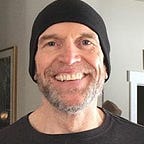Rebel Without A Cause
Continuing with David Graeber’s analysis of Eric’s job experience from last time:
“What drove Eric crazy was the fact that there was simply no way he could construe his job as serving any sort of purpose.
“To get a sense of what was really happening here, let us imagine a second history major-we can refer to him as anti-Eric — a young man of a professional background but placed in exactly the same situation. How might anti-Eric have behaved differently?
“Well, likely as not, he would have played along with the charade. Instead of using phony business trips to practice forms of self-annihilation, anti-Eric would have used them to accumulate social capital, connections that would eventually allow him to move on to better things. He would have treated the job as a stepping-stone, and this very project of professional advancement would have given him a sense of purpose.
“But such attitudes and dispositions don’t come naturally. Children from professional backgrounds are taught to think like that from an early age. Eric, who had not been trained to act and think this way, couldn’t bring himself to do it.”
Like Eric, I couldn’t bring myself to do it either — although it was not so much that I couldn’t, it was more a case of not knowing how. I was bright enough, had a knack for the all-important “ likeability factor “ with clients and colleagues, and worked with lots of clients and other professionals who were members of the Red Velvet Rope Club. But like Eric, I remained on the outside looking in, and I spent a lot of time feeling envious of others who fit in so easily. Those dynamics dogged the early years of my law career. In time, a general sense of inadequacy became depression, which I compensated for by nursing a rebel-without-a-cause attitude.
My experience didn’t have to be that way. Consider, for example, the story of super-lawyer David Boies. Like Eric and me, Boies was also born to working class parents and grew up in a farming community, but that’s where the resemblance ends. Chrystia Freeland introduces him this way in her book Plutocrats: The Rise of the New Global Super-Rich and the Fall of Everyone Else (2012):
“As the world economy grows, and as the super-elite, in particular, get richer, the superstars who work for the super-rich can charge super fees.
“Consider the 2009 legal showdown between Hank Greenberg and AIG, the insurance giant he had built. It was a high-stakes battle, as AIG accused Greenberg, through his privately-held company, Starr International, of misappropriating $4.3 billion worth of assets. For his defense, Greenberg hired David Boies. With his trademark slightly ratty Lands’ End suits (ordered a dozen at a time by his office online), his Midwestern background, his proud affection for Middle American pastimes like craps, and his severe dyslexia (he didn’t learn how to read until he was in the third grade), Boies comes across as neither a superstar or a member of the super-elite. He is both.
“Boies and his eponymous firm earned a reputed $100 million for the nine-month job of defending Greenberg. That was one of the richest fees earned in a single litigation. Yet, for Greenberg, it was a terrific deal. When you have $4.3 billion at risk, $100 million — only 2.3 percent of the total — just isn’t that much money. Further sweetening the transaction was the judge’s eventual ruling that AIG, then nearly 80 percent owned by the U.S. government, was liable for up to $150 million of Greenberg’s legal fees, but he didn’t know that when he retained Boies.”
What did Boies have that Eric and I didn’t?
Well, um, would you like the short list or the long?
Boies is no doubt one of those exceptionally gifted and ambitious people who works hard enough to get lucky. I suspect his plutocrat switch was first activated when his family moved to California while he was in high school, and from there was exponentially supercharged by a series of textbook upwardly mobile experiences: a liberal arts education at Northwestern, a law degree from Yale, an LLM from NYU, joining the Cravath firm and eventually becoming a partner before leaving to found his own firm.
That’s impressive enough, but there’s more to his story: somehow along the way he was transformed into the kind of person who belongs — in his case, not just to the 9.9% club, but to the 0.1 %. Yes, his human capital was substantial, but it was his personal transformation that enabled him to capitalize (I use that term advisedly) on the opportunities granted only by social capital.
And now, if the 9.9 percenters we heard from a couple weeks back are correct, the pathway he followed is even more statistically rare (if that’s even possible) than when he travelled it — in part because of an economic principle that’s at least as old as the Bible.
We’ll talk about that next time.
Originally published at http://theneweconomyandthefutureofwork.wordpress.com on August 23, 2018.
